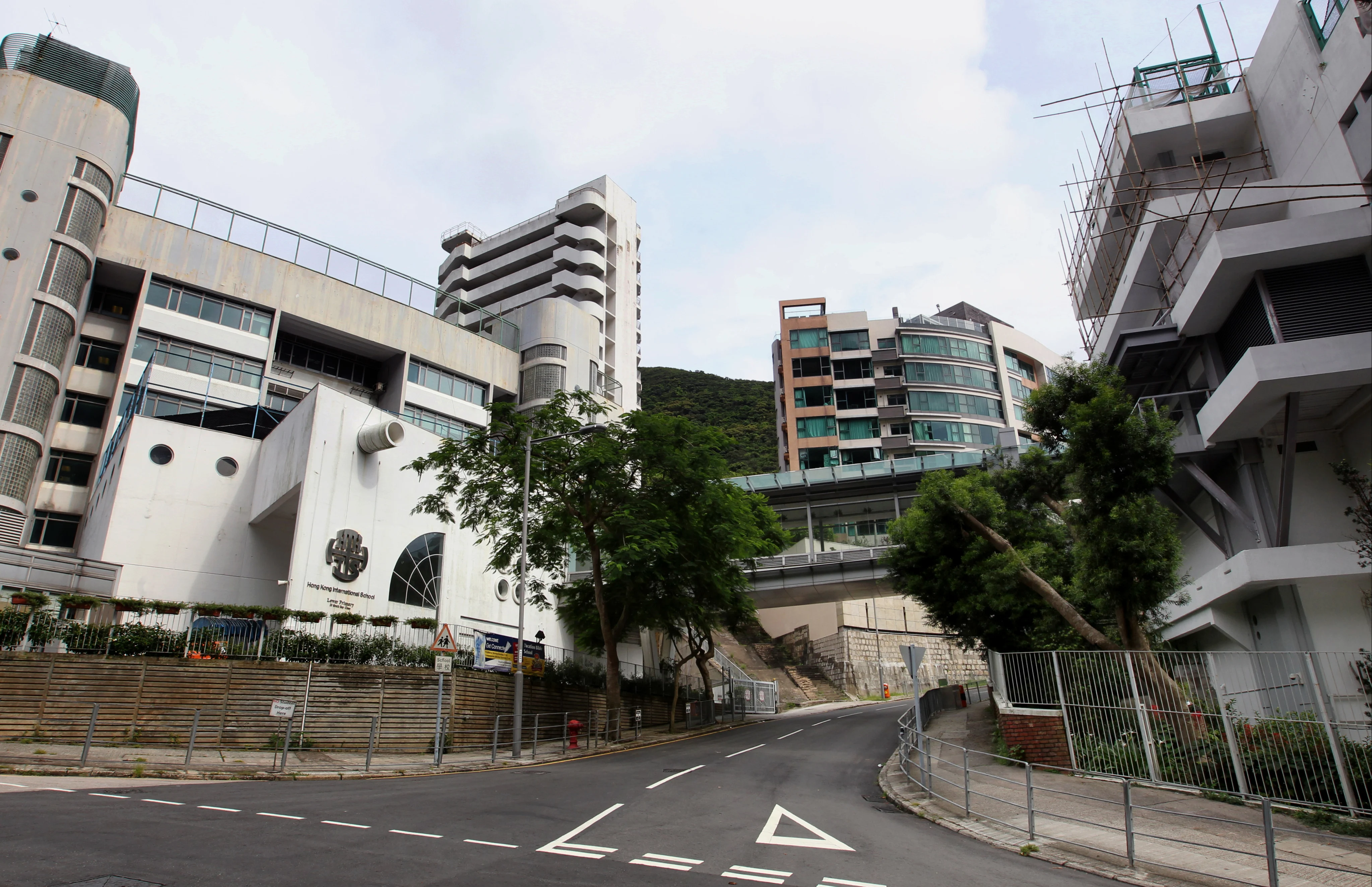By Leopold Chen,William Yiu
Copyright scmp

A United States-based church is suing the management of a top Hong Kong school it co-founded in 1966 for allegedly breaching an operational agreement, accusing the institution of serving only the “rich and privileged few” and amassing excessive financial reserves.
The Lutheran Church – Missouri Synod (LCMS), which is the registered owner of the Hong Kong International School’s (HKIS) campus in Repulse Bay, told the institution to rectify its numerous breaches or face eviction from the property and another campus.
But the school’s operator, Hong Kong International School Association Limited (HKISAL), has rejected the allegations, dismissing them as “unfounded and disingenuous”.
On Wednesday, the church said that if the school management, which it accused of accumulating reserves of more than HK$2.8 billion (US$359 million), failed to comply with its demands, it would create a new private primary institution.
It said it would welcome the current students and staff to join the new institution it would set up. To be called the Hong Kong Pacific School, it would charge lower fees with no debentures required for priority admission.
Christian Preus, chairman of the synod’s board of directors, said in an exclusive interview with the Post on Wednesday: “[The litigation] is an absolute last resort. We do not want to do this.
“At the same time, this is our school. We did found it. It’s drifted so far apart that it’s not fulfilling the promises we made when we started the school; we can’t just walk away from that and abandon our promises.”
HKISAL said it would “defend its position vigorously to protect the interests of our stakeholders”.
“HKISAL is disappointed that the LCMS has resorted to litigation when the parties have been engaged in discussion for several years over these issues in the hope of reaching an amicable resolution,” it said.
But Preus claimed his church had tried to get the message across to HKISAL in nearly 100 letters, Zoom meetings and phone calls since 2022.
But he said no positive responses had come back, giving him the impression that the association was unwilling to work something out.
In the court document the church submitted to the city’s High Court on Wednesday, the church said it was giving the school management a final opportunity to fully comply with the operating agreement no later than by the end of the 2027-28 academic year.
The writ said the church was not seeking financial compensation for the present action, as it only wanted to honour its commitment to the Hong Kong government “to operate a not-for-profit school” at the Repulse Bay campus.
The synod warned that it would terminate the operating agreement and evict the school from the Repulse Bay and Tai Tam campuses if the matter could not be resolved.
The school’s primary section is based in Repulse Bay, while its secondary section is located in Tai Tam. The institution has more than 3,000 students from 40 countries and territories.
The Tai Tam site is owned by the association, which was incorporated in 1974 to undertake the day-to-day management of HKIS on behalf of the church.
The church did not spell out what authority it had to force an eviction of the association from its Tai Tam campus, beyond saying it would leave the matter to the court.
A source familiar with the matter said that LCMS had asked for a site tour of the Repulse Bay campus with property agents in 2022 to assess the value of the land.
The church group later listed to the management some plans to sell the school and redevelop the land, saying the campus was valued at US$400 million to US$500 million, while the valuation would hit up to US$1.1 billion if it was turned into residential and commercial development, according to the source.
But the insider said the government had set restrictive terms on the plot’s land use.
At the school, this year’s annual tuition fee for primary pupils costs HK$224,800, while the price for junior and senior secondary students stands at HK$236,200 and HK$263,000. It is among schools with the most expensive tuition fees in Hong Kong.
The church said the school’s financial reserves amounted to more than HK$2.8 billion.
“The LCMS believes that HKIS today, with financial reserves of more than HK$2.8 billion, has become a school for the rich and the privileged few, not an economically and socially inclusive school for all of Hong Kong as intended and agreed,” it said.
The church said the association had generated cumulative net operating surpluses of nearly HK$800 million over the past five years, with the amount in 2024 reaching almost HK$300 million.
“Personally, I find them grossly excessive. You look at the amount of their reserves, and if I were looking for money, I’d say: this is a great, nice job. But this is not a profit organisation. This is a charity. This is a non-profit. It’s not just for the rich,” Preus said.
The church said the management had kept demanding more payments from parents, including regularly increasing school fees, selling priority access debentures, repeatedly seeking funding and donations even in cryptocurrency, and charging student training and competition fees, despite having substantial financial reserves.
It argued that the school should use the funds to reduce school fees and provide significantly more scholarships and financial aid.
It also revealed that the school had spent HK$1 billion to build a new “student activity centre”, which included two gymnasiums, four tennis courts, a fitness centre, an indoor golf simulator, a dance studio, indoor rock-climbing facilities and the institution’s third indoor swimming pool.
According to the group, the school also offered a debenture programme in which each note was sold at HK$3 million for a family to support multiple children from the same immediate family.
In Hong Kong, a debenture is a one-time, upfront payment made by parents that effectively serves as a loan to a school.
Qualified applicants holding the debentures are also given priority admission, though they are not mandatory. They are redeemable at par value after a minimum 15-year holding period.
“I just don’t like the concept of a debenture. I just don’t think that’s the best way to finance the organisation because it appears to give a preference to those who can afford it … that’s not how I would want the school to be run,” Preus said.
While the insider also said LCMS had gradually reduced its involvement with the school through several revisions of the operating agreement, the church listed in the writ various breaches of the deal last revised in 2013, including some staffing appointments.
The church alleged that the association had prevented it from supervising the school by repeatedly ignoring or refusing requests for information.
The church also expressed its dissatisfaction with the composition of the school’s board of directors, noting nearly half of them worked in the private equity industry and none were educators.
It added that the school’s management had not sought approval from the church for any of the recently appointed directors.
The Education Bureau said it would closely monitor the situation to ensure that the school’s operations and the interests of students were unaffected.
A spokeswoman said the bureau would not offer comment at this stage, citing the ongoing legal proceedings.



